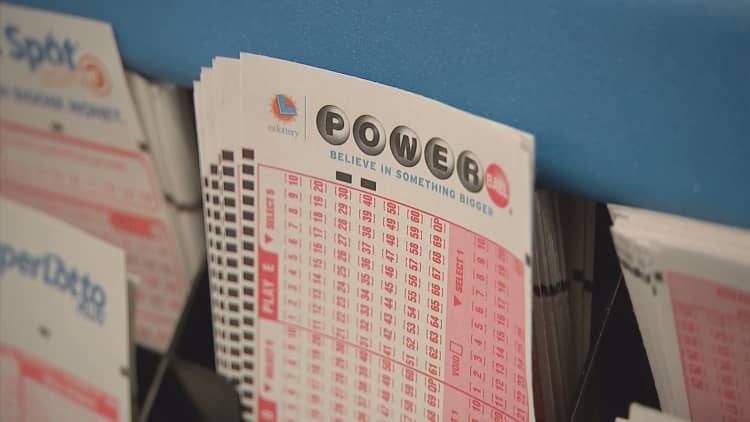
A recent Powerball winner in New Hampshire who sued to protect her identity from the public was awarded the right to remain anonymous by a judge on Monday.
Yet the court battle shows that trying to remain anonymous after hitting a big jackpot takes some advance planning.
Known only as Jane Doe, the New Hampshire woman who won $559.7 million in the Jan. 6 Powerball drawing collected her after-tax winnings of $264 million last week. At that point, however, it remained uncertain whether the court would side with her request to retain her anonymity.
At issue was the fact that she signed her name on the back of the ticket upon discovering she won. This is standard advice from lottery experts, because if you are somehow separated from the ticket, your signature should help ensure you still get the prize.
However, in this instance, it also meant the winner was giving up her ability to shield her identity from the public.
New Hampshire law allows lottery officials to release the name on the ticket. The woman only found out after signing it that she could have created a trust to receive the money and had the trustee sign the back of the ticket.
So she filed a lawsuit to block her name from being released publicly. The court allowed her to collect the windfall via a trust while the case was still in limbo. On Monday, the judge in the case ruled in her favor.
Despite the problem this winner faced by putting her name on the ticket, other jackpot winners should not automatically forego signing their ticket.
How investors would handle a multi-million-dollar lottery win
| Take the lump sum | 74.8% | Take the annuity | 25.2% |
| Claim the ticket immediately | 43.4% | Wait to come forward | 56.6% |
| Consult a lawyer/accountant/financial advisor before claiming | 80.1% | Claim the ticket with no outside help | 19.9% |
| Remain anonymous | 90.7% | Step into the spotlight | 9.3% |
| Quit my job immediately | 48.1% | Keep working | 51.9% |
| Hire a financial advisor | 63.6% | Manage it myself | 36.2% |
Source: SOURCE: TD Ameritrade
"It's hard to give blanket advice because all state laws are different, but if you don't sign the back and someone else gets a hold of it, signs it and turns it in, they'll get the money," said Jason Kurland, an attorney at Certilman Balin Adler & Hyman, a law firm in East Meadow, New York.
At the same time, however, this winner's experience illustrates the importance of turning to trusted experts before doing much of anything if you win a huge amount.
In some states, remaining anonymous is impossible. In others, it's easy. And in others like New Hampshire, it takes extra planning to protect the winner's identity.
Here are some other tips for lottery winners.
1. Take a deep breath
Typically, lottery winners have three months to stake their claim. Before you decide to prove you've won, however, it's best to first enlist the help of a team of pros: an attorney (this should be your first call), a financial planner and an accountant. Make sure you choose these professionals carefully.
2. Remain anonymous if possible
It's best not to announce to the world that you've won. An attorney can help create a legal entity — i.e., a revocable trust or a family limited partnership — that protects your identity.
If you can't avoid publicity (some states require publishing your identity), consider changing your phone number, or living somewhere else temporarily. That will help avoid media attention and sudden money requests from long-lost friends or relatives you never knew you had.

3. Choose a lump sum or annual payments
Figure out whether to take the lump sum or 30 allotments over 29 years. This decision is often made based on your tax situation. This is when relying on the advice of pros (and not family) makes sense.
4. Consider the big picture
Before spending a dime, think about what this sudden wealth means — not only financially, but emotionally.
Give yourself time to process the magnitude of your win. This is often when winners begin to think about their legacy and what societal contributions they want to make. Some even set up their own charitable organizations.
More from Personal Finance:
The best and worst states for the wealthy
Here's why a big tax refund isn't always good news
Senate banking bill would make credit freezes free


